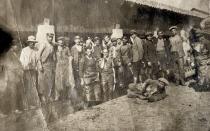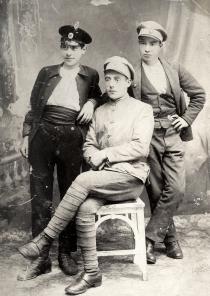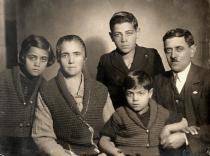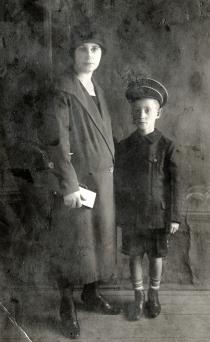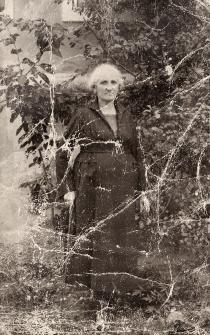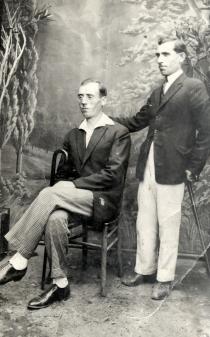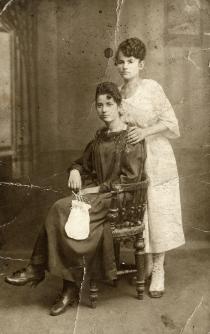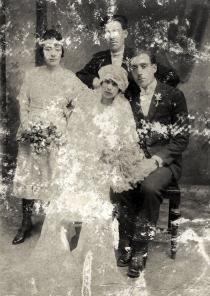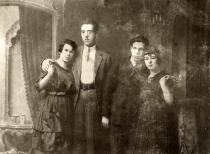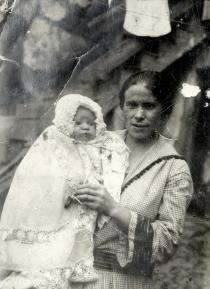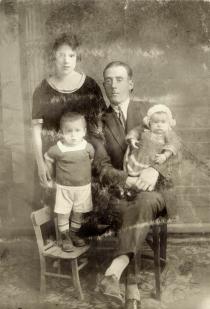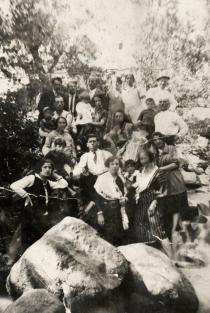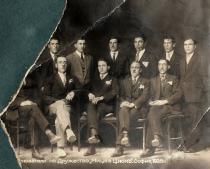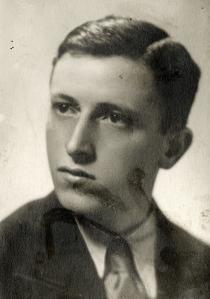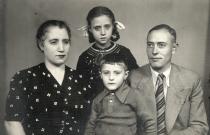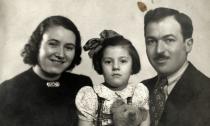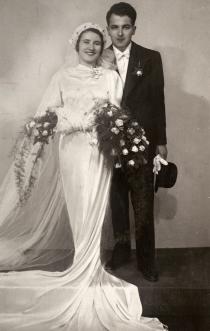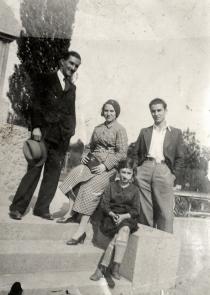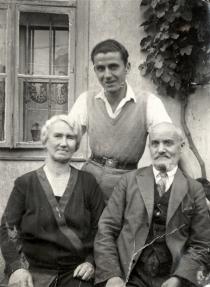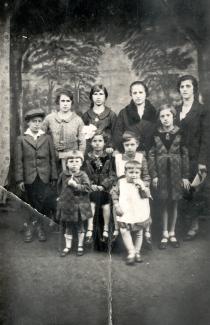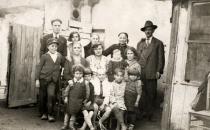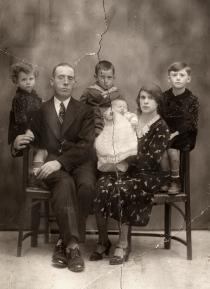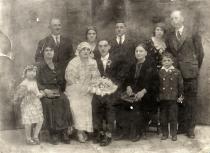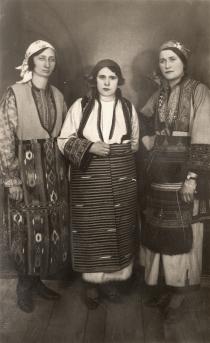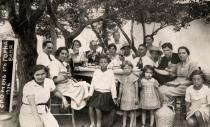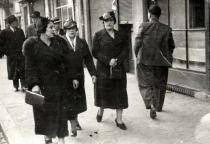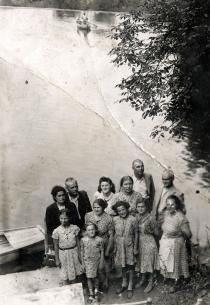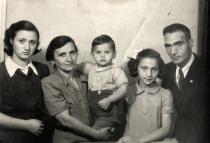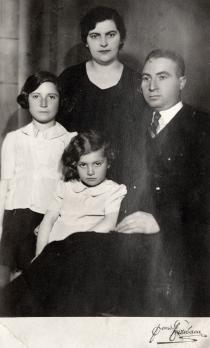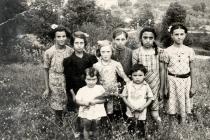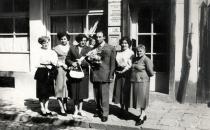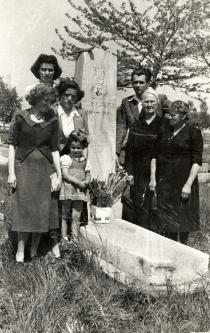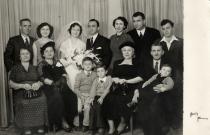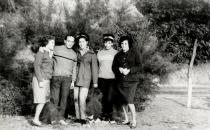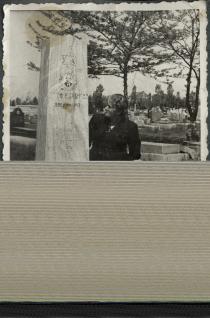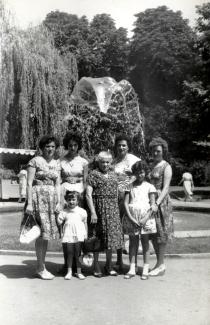This is a photo of my mother Sarina Sabitai at my father's tombstone. He died in 1947 at the age of 47.
In 1943 we were interned to the town of Ferdinand [today Montana]. We were isolated there in a Jewish quarter and were permitted to go out for only two hours a day. Something funny happened there. My father had an employee from Ferdinand in his tinsmith workshop in Sofia - he was called Peno. This man Peno had a tinsmith workshop in Ferdinand. My father got in touch with him and he became Peno's worker. We were not allowed to work then, but my father used to sneak into his workshop to help him.
Ferdinand was a small town with a population of about 5,000. We lived in terrible conditions. Initially we were accommodated in a school with another ten families. We, children, however, couldn't feel the impact of the situation as it was felt by our parents, who strived for our bare existence. On the other hand we, the youths, led an exceptionally organized life - perhaps our Jewish gene was such - and that helped us cope with the adversities. The authorities allowed us to go out only between 5 and 7pm. We were banned from going out at any other time. We always used to get together during those two hours of freedom, organizing countless literary evenings with lots of poetry reading and songs. We didn't feel bored then - we read a lot and exchanged books amongst ourselves. I remember that there were times when I read 50 pages an hour. We had a very intensive and rich cultural life because we had nothing else to do. We were not allowed to work or to go out, and this enabled us to occupy ourselves with arts.
After some time, we were allowed to rent a house and, we rented a three-roomed village house with a family that hade been our neighbors in Sofia. The owners went to live in the barn; two rooms were occupied by our parents and in the third room our fathers knocked up two rows of wooden plank-beds, where the lot of us - six children - slept. We lived like that till 9th September 1944. Then we received a notice that our house had been sold. That notice stated the amount for which it had been sold and the taxes charged, calling on my father to receive the money from the sale. My father said that he had no house for sale and that he didn't want to receive any money. Thus the sale of the house didn't materialize.
When we went back to Sofia around 9th September 1944, we found strangers living in our house. We filed a lawsuit straight away in order to recover possession of it. During that period we lived with one of my father's brothers, who occupied a room and a kitchen. He moved to the kitchen and let us have the room. After a while we managed to regain possession of our house, which still exists at Pernik Street. Currently this house is unoccupied. For a long time my niece lived there, but she bought an apartment and moved away. We tried to lease it, but things didn't work out, and we now prefer to keep it empty.
During the internment, Jewish men endured an incredible stress and it was their shoulders, which were overburdened with worries to provide for their families. Many young men died due to the huge torment they were subjected to. These include my father, too, who died at the age of 47. The fathers of a number of my relatives and friends passed away young as a result of what they had lived through.

